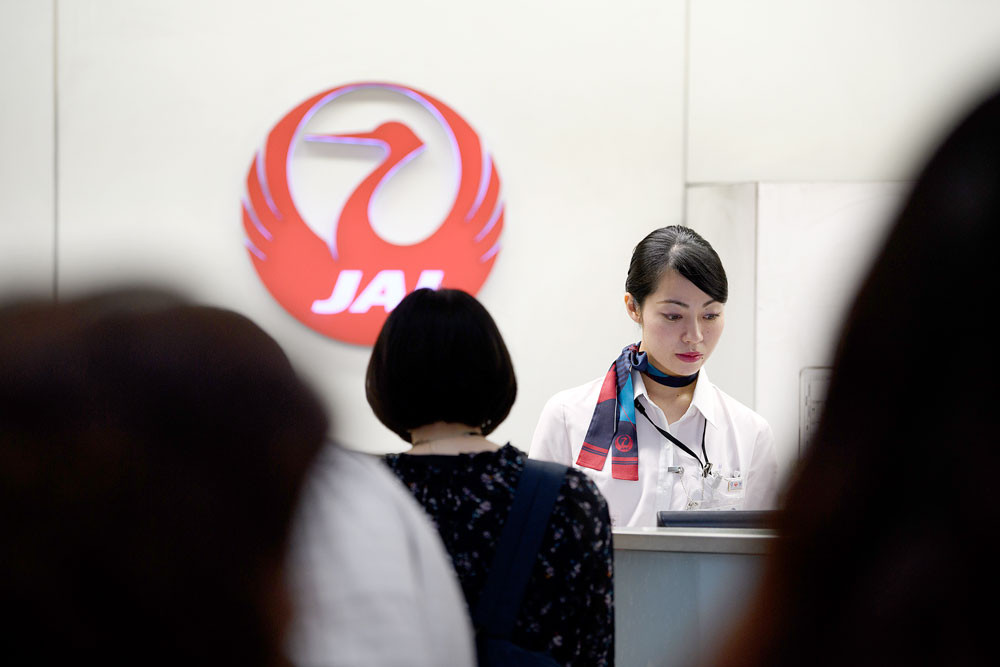Popular Reads
Top Results
Can't find what you're looking for?
View all search resultsPopular Reads
Top Results
Can't find what you're looking for?
View all search resultsPandemic-hit JAL logs smaller loss of $531 million in April-June
Cost-cutting efforts also helped the major Japanese airline limit the red ink following its largest quarterly net loss of 93.71 billion yen reported a year earlier since its 2012 relisting. Sales grew 74.1 percent from the previous year to 133.03 billion yen.
Change text size
Gift Premium Articles
to Anyone
J
apan Airlines on Tuesday reported a smaller net loss of 57.92 billion yen ($531 million) for the April-June quarter compared with a year earlier, as air travel demand has been recovering from a slump caused by the coronavirus pandemic.
Cost-cutting efforts also helped the major Japanese airline limit the red ink following its largest quarterly net loss of 93.71 billion yen reported a year earlier since its 2012 relisting. Sales grew 74.1 percent from the previous year to 133.03 billion yen.
JAL did not release earnings forecasts again for fiscal 2021, saying it is difficult to make projections amid the pandemic.
Air traffic remains below pre-pandemic levels but the number of passengers on both domestic and international flights is increasing, leading to revenue growth.
The business environment remains "severe" due to the prolonged impact of the global health crisis but hopes are emerging for an "early recovery" of domestic travel demand with progress in vaccinations, according to the airline.
JAL saw a 4.4-fold increase in passengers on international flights over the past year to 149,492, even though travel restrictions imposed by many countries were in place.
The number of passengers on domestic flights more than doubled to 2.71 million from a year ago when travel demand took a dive due to a COVID-19 state of emergency covering the whole of Japan.
Similarly to its domestic rival ANA Holdings Inc., JAL continued to benefit from a rise in cargo demand sparked by the coronavirus pandemic. Revenue in the cargo segment increased to 47.6 billion yen in the April-June quarter from 26.5 billion yen a year ago.
Having reported in fiscal 2020 its first net loss since its 2012 relisting following rehabilitation, JAL now faces the challenge of returning to profitability on a full-year basis.
Demand for domestic travel has been picking up, but a COVID-19 state of emergency declared for prefectures with surging coronavirus cases such as Tokyo and Osaka has cast a cloud over the outlook ahead of Japan's summer holiday season in mid-August.
The Tokyo Olympics, scheduled to end on Sunday, have not been a boon to the airline industry as foreign spectators have been barred and domestic fans are also not permitted to enjoy the games at most of the competition venues.










